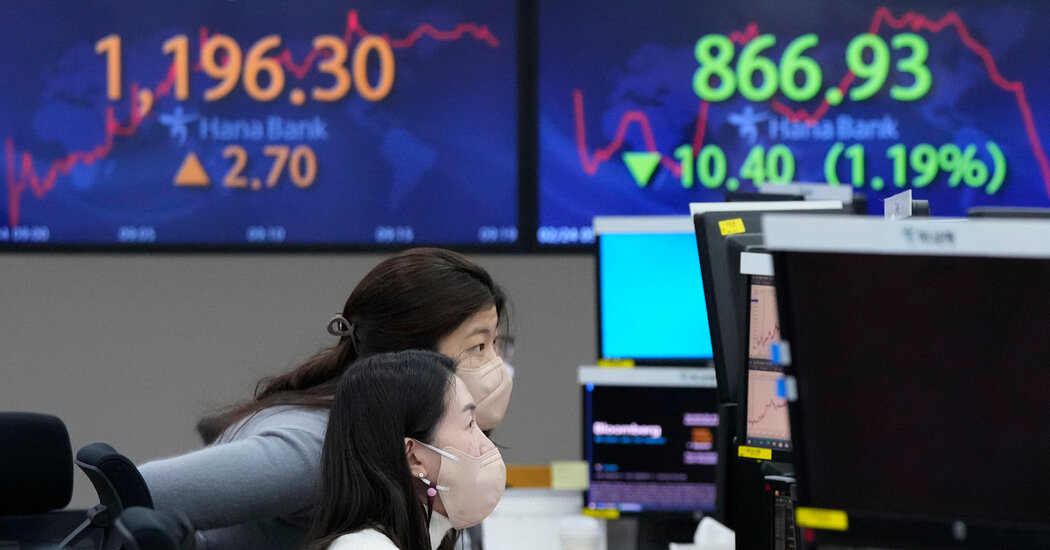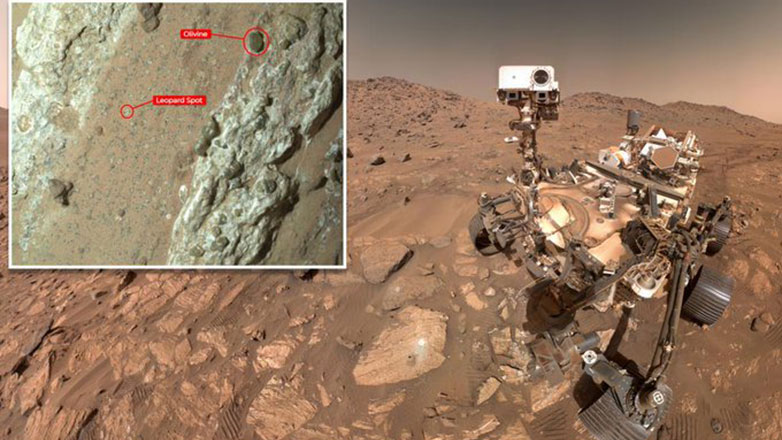
Oil jumped above $100 a barrel for the first time since 2014, European natural gas futures jumped 31 percent, and Asian stocks fell on Thursday. Russia invaded Ukrainewhich led to continued market turmoil in the US and Europe that was driven by fears of a large-scale attack.
Wall Street was poised for a slide at the start of trading, with futures pointing to a 2 percent drop in the S&P 500.
Japan’s Nikkei 225 index was down just over 2.1 per cent by noon. In Hong Kong, the Hang Seng Index is down 3.1 percent, while the Kospi Composite Index in South Korea is down 2.7 percent.
The price of Brent crude, the global benchmark, rose more than 6 percent to nearly $103 a barrel.
Gas futures in the Netherlands, a European natural gas standard, jumped 31 percent at the start of trading, to about 116 euros per megawatt-hour. Russia supplies more than a third of EU gas, some of which passes through pipelines in Ukraine.
Global markets have witnessed widespread nervousness in recent days. The Stoxx Europe 600 reversed early gains to fall 0.3 percent on Wednesday. The S&P 500 posted a fourth consecutive day of losses, losing 1.8 percent and sliding deeper into correction territory – down more than 10 percent from a recent high. It is now 11.9 percent from its peak on January 3.
News from Ukraine is becoming increasingly terrible Thursday. Russian President Vladimir Putin has ordered the start of a “special military operation”, and the Ukrainian government has confirmed that several cities have been attacked. Cyber attacks have also destroyed government institutions in Ukraine.
The Moscow Stock Exchange stopped trading, and the ruble fell to a record low against the major currencies.
A large-scale invasion could have wide-ranging effects on commodities, including oil, natural gas, wheat, and minerals. Europe is highly dependent on Russia for energy, and parts of the Middle East and Africa receive most of their wheat from Russia and Ukraine. Even if supply chains remain intact and Russian exports are not affected by the sanctions, there are concerns that Mr. Putin may punitively cut supplies.
Few of Russia’s exports go directly to the United States, but turmoil anywhere could raise prices, prolonging inflation that has already run longer than officials expected. The Federal Reserve has indicated that it is preparing to raise interest rates, with the goal of slowing inflation by slowing spending, and giving supply time to catch up. But higher rates will also dampen growth, and doing so while markets are already down risks prolonging deflation.
US stocks have been shrugging off the correction for weeks, as investors worried about how quickly the Federal Reserve would raise interest rates. The Standard & Poor’s 500 Index, the US benchmark, had crossed the 10 percent threshold several times in day trading but rose by the end of trading. Technology stocks in particular have slipped away from their highs, and the tech-heavy Nasdaq Composite is down 18.8 percent from its November record. It’s close to the drop that would indicate an even worse change in sentiment on Wall Street: a bear market, or a 20 per cent drop.
Anton Troyanovsky Contribute to the preparation of reports.

“Avid problem solver. Extreme social media junkie. Beer buff. Coffee guru. Internet geek. Travel ninja.”





More Stories
Dow Jones rises 654 points
Used Car Travels Around The World – Crashed, Sold For New Car
If it weren’t for the merger of Attica Bank and Bankritia, they could have collapsed.